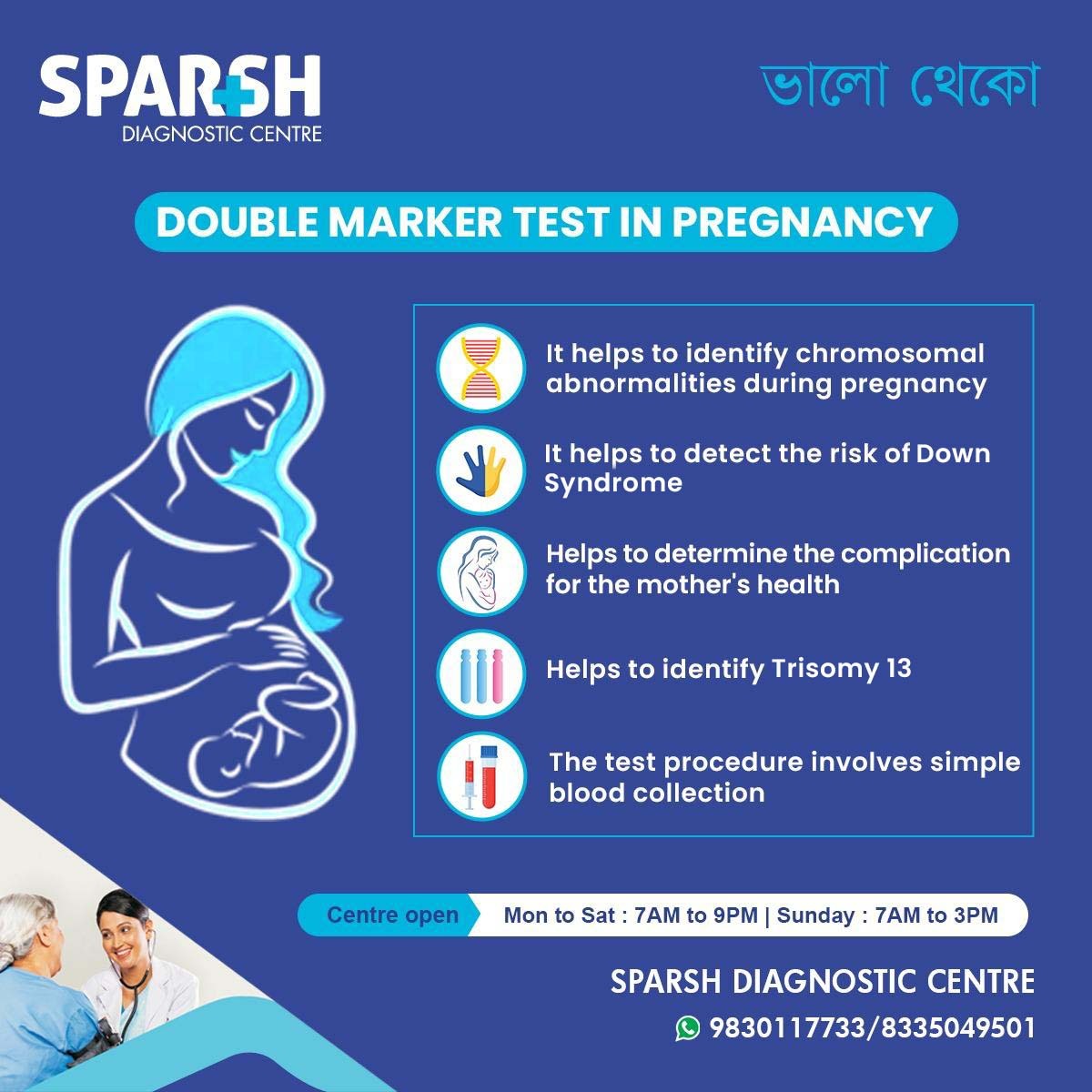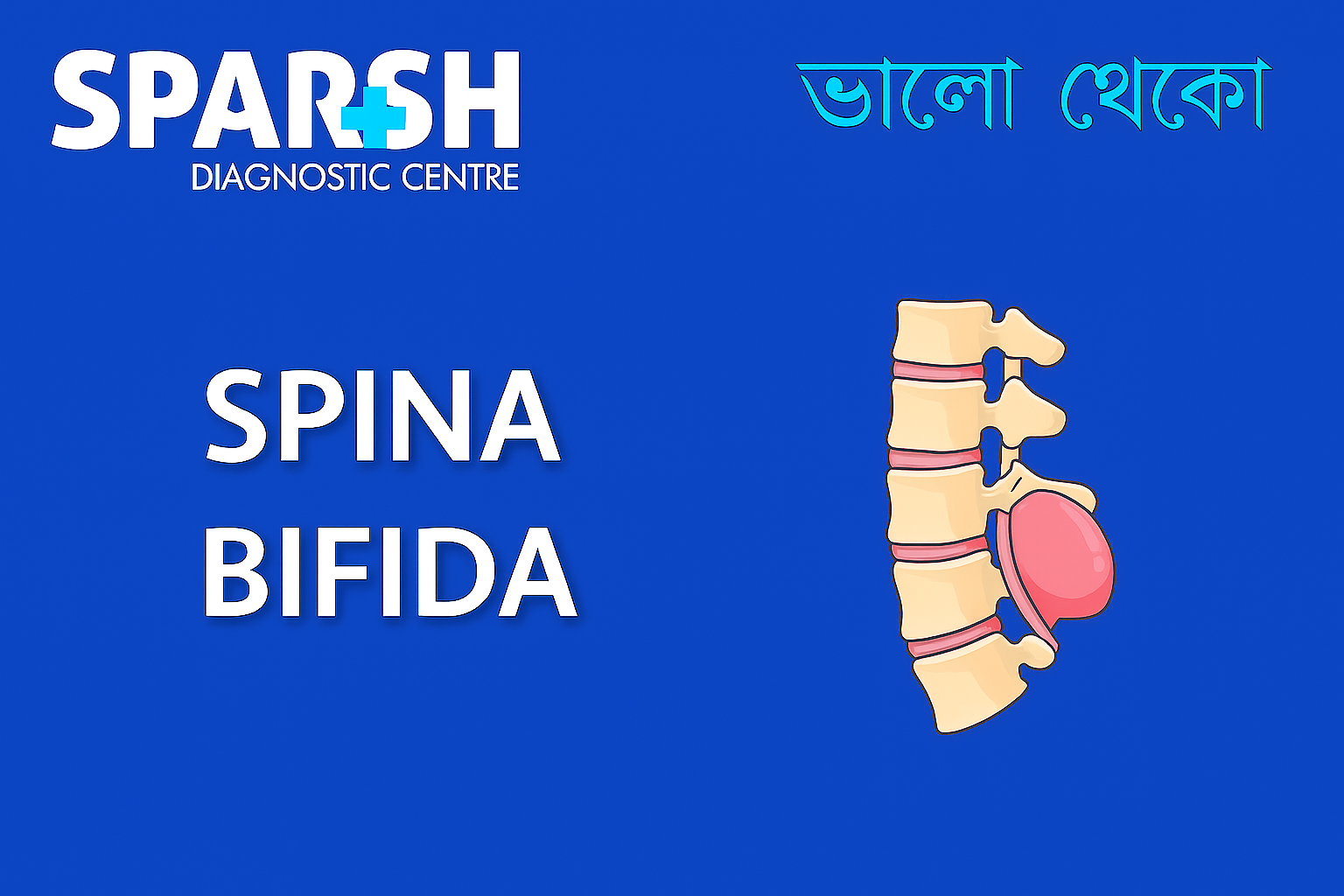Pregnancy is a time filled with anticipation, hope, and numerous medical check-ups to ensure the health of both mother and baby. Among these tests, one crucial early screening is the Double Marker Test, which plays a vital role in assessing the risk of chromosomal abnormalities in the fetus. This non-invasive test can offer peace of mind or help prepare for potential challenges.
In this comprehensive guide, we explore what the Double Marker Test is, when it’s done, how it works, what the results mean, and why it matters.
What Is the Double Marker Test?
The Double Marker Test is a prenatal screening test performed during the first trimester of pregnancy. It involves a simple blood test that measures the levels of two essential markers:
Free Beta Human Chorionic Gonadotropin (Free β-hCG)
Pregnancy-Associated Plasma Protein A (PAPP-A)
These biochemical markers are analyzed in conjunction with the nuchal translucency (NT) scan, an ultrasound that measures the thickness at the back of the fetal neck. Together, they help detect the risk of chromosomal abnormalities such as:
When Is the Double Marker Test Done?
The ideal window for taking the Double Marker Test is between 9 and 13 weeks of gestation, with 11 to 13 weeks being the most accurate time frame. This is during the early part of the first trimester when combined screening with NT scan offers the most reliable results.
Why Is the Double Marker Test Important?
The test provides early risk assessment for chromosomal abnormalities. Here’s why it matters:
1. Identifies Chromosomal Abnormalities
It helps detect deviations in the number or structure of chromosomes, which could lead to conditions like:
Down Syndrome (Trisomy 21): A genetic disorder that causes developmental and intellectual delays.
Trisomy 13 and Trisomy 18: Severe genetic disorders often associated with structural anomalies and poor life expectancy.
2. Assesses Maternal and Fetal Health Risks
The levels of β-hCG and PAPP-A also reflect the health of the placenta, and abnormalities could indicate complications such as:
3. Guides Further Diagnostic Tests
If the Double Marker Test indicates high risk, additional diagnostic tests like Chorionic Villus Sampling (CVS) or Amniocentesis may be recommended.

How Is the Test Performed?
Step-by-Step Process:
Blood Sample Collection: A simple blood sample is drawn from the mother’s vein.
NT Scan Coordination: The ultrasound scan is done separately but around the same time.
Data Input: Age, weight, gestational age, and scan results are input into specialized software.
Risk Calculation: The software calculates the risk of chromosomal abnormalities by combining biochemical and ultrasound data.
Who Should Take the Double Marker Test?
Although it is offered to all pregnant women, the test is particularly important for:
Women aged 35 or older
Those with a family history of genetic disorders
Women with abnormal ultrasound findings
Those who had a previous child with a genetic condition
Women who had multiple miscarriages
Interpreting the Results
The Double Marker Test doesn’t confirm a diagnosis. Instead, it provides a risk ratio:
Low Risk: The likelihood of chromosomal abnormality is low. No further invasive testing is usually needed.
High Risk: The probability of chromosomal issues is higher than average. Additional testing like NIPT, CVS, or amniocentesis is often advised.
Risk Ratio Example:
1:1000 – Low risk (1 chance in 1000)
1:150 – High risk (1 chance in 150)
Benefits of the Double Marker Test
✅ Early Detection
Provides a window into fetal health early in pregnancy.
✅ Non-Invasive
Requires only a blood sample, posing no risk to the fetus.
✅ Informs Decision-Making
Helps expectant parents make informed choices about further testing, interventions, or planning.
✅ Safe and Accurate
When combined with NT scan, it achieves a sensitivity rate of up to 85% in detecting Down syndrome.
Limitations of the Test
Despite its benefits, the Double Marker Test is not diagnostic. Key limitations include:
False Positives/Negatives: Some low-risk pregnancies may still result in chromosomal disorders, and vice versa.
Dependent on Accurate Gestational Age: Inaccurate dating can skew results.
Follow-Up Needed: High-risk results require more invasive and definitive testing.
What Happens After the Test?
If Results Are Normal:
You can continue routine prenatal care and opt for second-trimester screening like the Quad Marker Test or Anomaly Scan.
If Results Are Abnormal:
Genetic counseling is often recommended.
Diagnostic procedures like CVS (10–13 weeks) or amniocentesis (after 15 weeks) are offered for a definitive diagnosis.
Difference Between Double Marker and Triple Marker Test
| Feature | Double Marker Test | Triple Marker Test |
|---|---|---|
| Time of Testing | 9–13 weeks | 15–20 weeks |
| Markers Measured | β-hCG, PAPP-A | AFP, β-hCG, Estriol |
| Combined With | NT Scan | Anomaly Scan |
| Purpose | Early risk detection | Further screening in 2nd trimester |
FAQs About the Double Marker Test
Q1: Is it mandatory?
No, but it is highly recommended as an early screening tool to assess chromosomal risks.
Q2: Is it safe for the baby?
Yes, the test is non-invasive and safe for both mother and baby.
Q3: Can the test detect neural tube defects?
No, neural tube defects are usually detected through second-trimester tests like the Quad Marker and Anomaly Scan.
Q4: What if I miss the test window?
You can opt for other second-trimester screening tests like the Triple Marker Test or Quad Screen.
Q5: Can I get the test without an NT scan?
While the blood test can be done alone, combining it with NT scan significantly improves the accuracy of the results.
The Double Marker Test is an invaluable part of first-trimester prenatal care. It provides vital insight into the baby’s chromosomal health and helps identify potential complications early. This empowers expectant parents and healthcare providers to make informed, timely decisions.
At Sparsh Diagnostic Centre, we ensure accurate, prompt, and compassionate care during your pregnancy journey. Our expert technicians, latest technology, and supportive team are here to help you through each step.
Need to book your Double Marker Test?
📍 Visit Sparsh Diagnostic Centre
🕒 Mon to Sat: 7 AM – 9 PM | Sunday: 7 AM – 3 PM
📞 Call/WhatsApp: 9830117733 / 8335049501
#BhaloTheko
Disclaimer:
No content on this site, regardless of date, should ever be used as a substitute for direct medical advice from your doctor or other qualified clinician.

![]()





